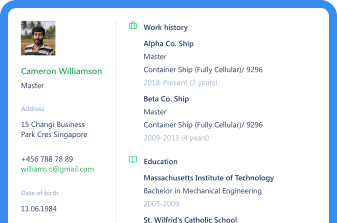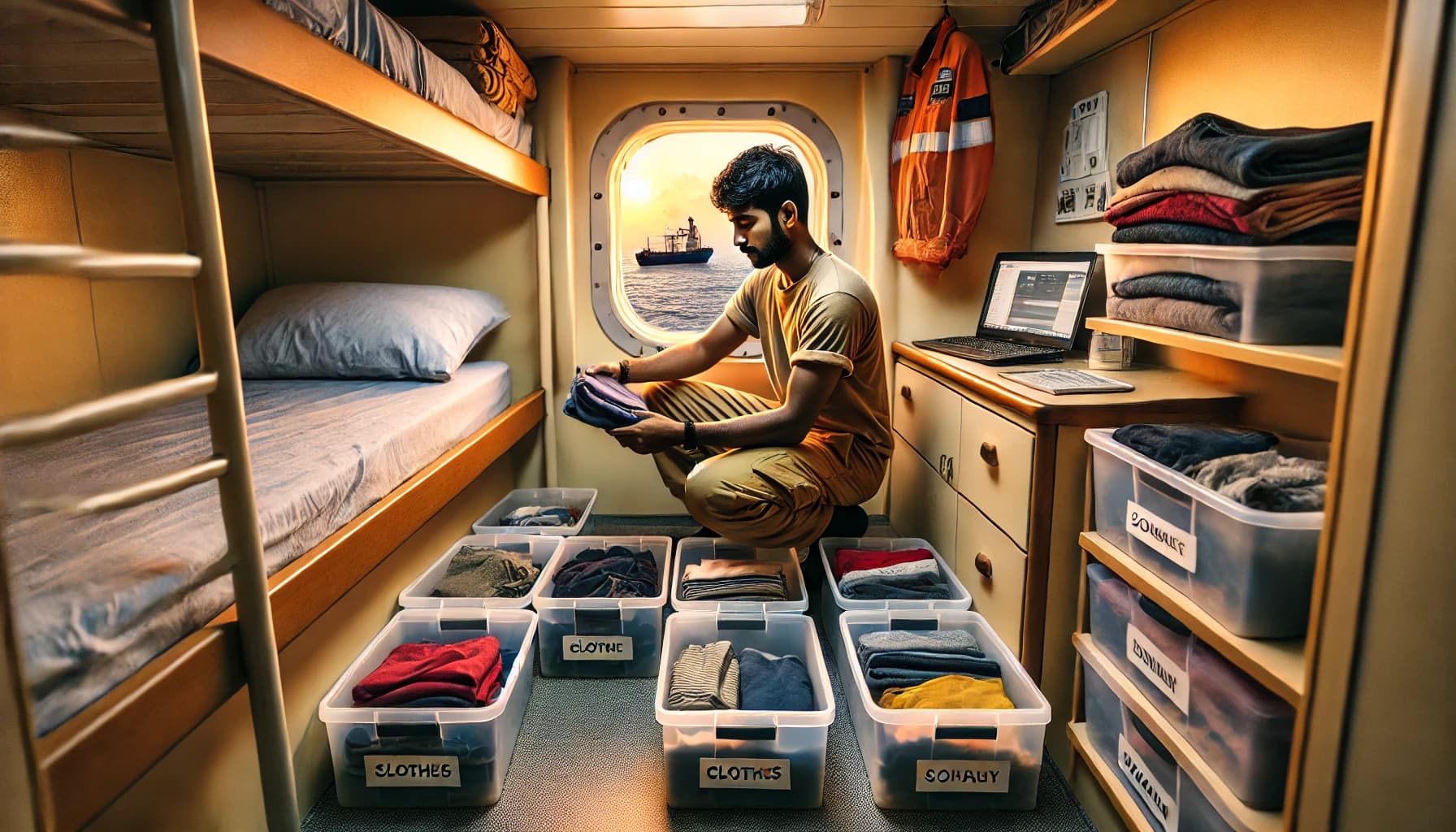If you’re the ‘stay at home partner’ in a relationship where one of you is working away from home in jobs at sea, you probably don’t need us to tell you that sometimes it can be hard.
Some days you can be just fine without your partner or spouse. Yet other times you’re left wondering how to cope while you’re dealing with the kids and they’re living their life on a cargo ship thousands of miles away.
How to cope when your partner works away in jobs at sea
The fact is, for those months while your spouse, boyfriend, girlfriend or partner is working at sea, you’re left to do absolutely everything on your own.
Maybe that means looking after the house you share together or perhaps it’s being full time mommy and daddy to your children.
As well as potentially holding down your own job.
It’s probably fair to say you’ve become quite the multi-tasker and you’ve probably picked up a fair few skills that you never knew you had along the way!
Maybe your partner did all the cooking but now you’re responsible for getting everyone fed. Perhaps you used to take care of the home while they dealt with the garden and DIY. Now you’re a whiz with a hammer and a wrench!
Read more: 10 Valentine's Day Ideas for Seafarers & Their Partners
No one is doubting that seafarer jobs at sea aren’t hard - they’re often extremely demanding. But the fact is, it can be emotionally and physically tiring being the shoreside part of a couple.

And unless they’re in the same situation as you, not many people will give you credit for that.
Maybe your partner has been working on a ship for years and you’re used to this lifestyle and the cycle of contracts, or perhaps you’re in a fairly new relationship and your ‘other half’ is working at sea.
Either way not having someone there at the end of a long day can leave you feeling like you’re somehow missing out.
The importance of being emotionally supported can’t be understated - especially if you’re going through a rough time. And not having your partner around can make even small issues feel insurmountable at times.
That’s why it’s so important to keep the lines of communication open - especially when they’re working away from home.
Gently reminding your absent spouse that their communications mean a lot to you is important. As yours are to them, no doubt. Staying in touch by email and video calls, whenever possible, is crucial.
It will also allow them to offer support to you back on land - and vice versa. Chances are they feel a sense of guilt at not being there to help with the children when they’re misbehaving or to deal with things around the home that they’d take care of if they were there.

It’s also really important not to let resentment creep in.
There’s no doubt it can be a challenge to switch into cheerful mode when your partner calls or emails when you’re bone tired after another day of dealing with work, school runs, doctor’s appointments, cooking, housework and everything else life on shore entails all on your own.
You may have even given up your own career to take care of things while they’re working at sea.
But you need to remember that yours is a partnership like no other and that there is very likely a good reason why one of you is at home and the other is working on a ship.
It can be a challenge to be supportive of each other when you both might be struggling to see the other person’s point of view. Perhaps you both have moments where you’re convinced the other has it way easier than you do. But it’s not a competition to see who has it the hardest.
Read more: Keeping the Knot Taut: Maintaining Healthy Relationships as a Sailor
Screaming kids or gale force winds: neither are great. But you both have plusses too - you get to spend more time with family and friends for a start. It really is swings and roundabouts!
The key is understanding - or at least trying to understand - what each other is going through, whether that’s life on land or life on a cargo ship. And once again, it all comes back to good old fashioned communication.

How to surround yourself with support
Granted, this can be easier said than done, especially if you’re not living anywhere near friends or relatives. But having someone other than your partner to talk to is really important, particularly if you’re playing full-time mom and pop.
And believe it or not, it is possible to make new friends, even as an adult.
If you’re lucky enough to live near friends, family or both, get into the habit of taking time to catch up with them whenever you have a spare hour or so. This could be in person or over the phone. Turn it into a weekly or fortnightly routine so that you always have something to look forward to.
A common complaint that the ‘at home partner’ often has about their relationships with their friends and family is that they don’t really understand your life.
If they don’t have any experience of being in a relationship with someone who is working away from home it can be very hard for them to empathize with your unique situation.
They may even see it as you ‘giving up so much’ to support your partner who is working at sea.
There’s not much you can do except explain that your partnership is strong and it is something you’ve both agreed upon. And although, yes, it can be difficult at times, it is something that works for the pair of you.
In this scenario, if at all possible, it would be ideal to find friends who are in the same situation.
For example, if you’re living near a port, there must be other ‘stay at home’ spouses who have partners who are working on a ship or offshore. Can you connect with them and forge a bond?

Whether it’s meeting up for coffee or helping out with childcare, it will be a huge bonus for both of you to know someone else who is living with the same, or similar, circumstances.
How to cope when your partner comes home
If you have a partner working in contracted jobs at sea, that means you probably also have a partner who is at some point going to temporarily end their life on a cargo ship and come home on leave!
This in itself can pose a couple of tricky issues which should be carefully navigated.
For example, while your partner is working away from home, you’ve been carrying on your day to day life without him or her. Suddenly they’re back - and ready to get involved.
The thing is, you probably have your routines and your set ways of dealing with being a single parent - albeit a temporary one.
It’s understandable that you don’t want your or your children’s lives completely disrupted. After all, you’ve put in all the hard work making sure they eat at regular times and go to bed at a sensible hour. But a little bit of upheaval is to be expected, at least for a day or two when mom or dad comes home.
The trick is to take it in your stride. Understand that the kids are probably excited to see their other parent again - and it works both ways. Try not make your partner feel pushed out just because you set the mealtimes. Let them be a hands on parent, if that’s their style.
Indeed, take advantage of the fact you now have an extra set of hands around - for a short while at least!

They will probably need to de-stress but let them take over household duties such as putting the garbage out, walking the dog, and helping the kids with their homework.
While shore leave is traditionally a time for some rest and recuperation for anyone working away from home, you also deserve a little piece of that relaxation action too!
It’s important to make time for the two of you
Chances are when your spouse or partner is back from working at sea your social life will go into overdrive.
Friends start calling. Your families want to know when they can see you both. And it’s likely that your partner will be excited to put life on a cargo ship aside for a short while and enjoy life on land once again.
That’s great and it should be encouraged. After all, there’ll be plenty of life admin and tasks big and small to deal with while you’re both together in the same place. But make sure you two have some ‘us time’ too.
Make it clear to eager friends and family that you will be wanting some time alone. Arrange a date night. If possible get someone to look after the children so you can relax as a couple. Just make time for each other, whether it’s hitting the gym together, or having a romantic meal.
For your relationship to remain solid, you need to work on your bond and create moments that make the time apart worthwhile. With one half of a relationship working on a ship, there will be issues that will put your relationship to the test.
The main thing is to keep those lines of communication open, and genuinely respect the hard work that both of you put in to your relationship, whether you’re working at sea or keeping the home and family running on land.

Eve Church
Eve is Martide's content writer, publishing regular posts on everything from our maritime recruitment and crew planning software to life at sea. Eve has been writing professionally for more than two decades, crafting everything from SEO-focused blog posts and website landing pages to magazine articles and corporate whitepapers.
UK




